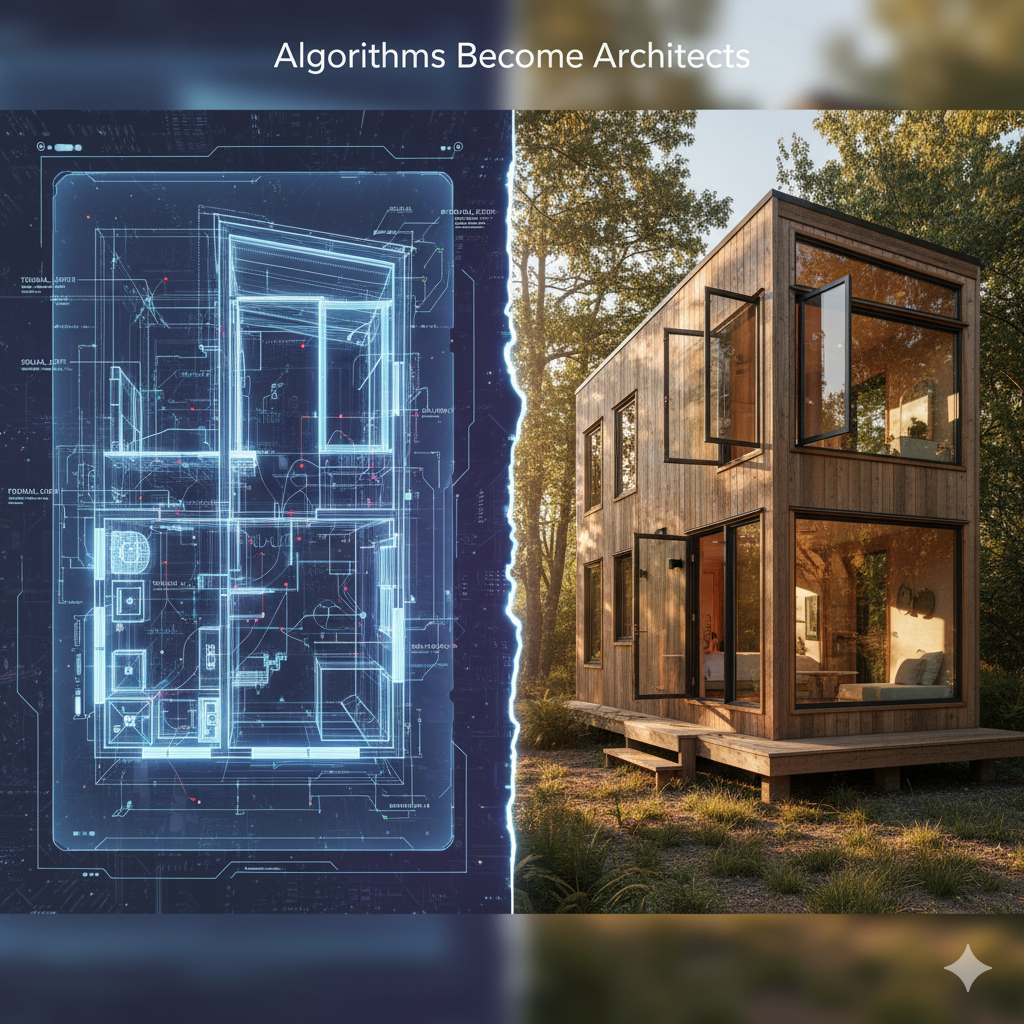Tiny Home Markets
Archives
AI-Driven Design Revolutionizes Tiny Homes
SIGN UP FOR OUR NEWSLETTER
AI-Driven Design Revolutionizes Tiny Homes |
Harnessing Generative Architecture for Smart, Personalized Living Spaces |
Artificial Intelligence (AI) is reshaping the landscape of tiny home design, introducing a new era of generative architecture that prioritizes efficiency and personalization.
Traditionally, architects and designers have relied on manual methods to create floor plans and layouts. Now, AI-driven tools are generating comprehensive designs, including floor plans, daylight studies, and furniture arrangements, which human architects can refine. This collaboration enhances creativity rather than replacing it.
In the realm of tiny homes, this technological advancement is particularly transformative. Algorithms can optimize every square inch, strategically placing plumbing for minimal runs, aligning windows to maximize seasonal light, and predicting airflow patterns—all before construction begins. This approach leads to fewer errors and faster builds, without sacrificing the unique character of each home.
The emotional connection between homeowners and their spaces is also evolving. By inputting personal habits—such as preferred morning coffee spots, yoga corners, or favored sunset views—into the AI system, the software adapts the design to fit individual lifestyles. This co-creation process makes the resulting space feel intimately tailored.
Recent developments underscore this trend. For instance, the AI-Transformer Home, a 400-square-foot smart home priced at $98,000, utilizes cutting-edge AI to control heating, cooling, lighting, and appliances, redefining sustainable living. Over 300 customers have pre-ordered this innovative housing solution using cryptocurrency, with deliveries starting in late 2026. The home can expand from 195 to 400 square feet, offering flexibility for modern families.
Furthermore, the tiny homes market is projected to grow by USD 3.71 billion from 2025 to 2029, driven by affordability and the growing trend of customization. This growth reflects a broader shift towards smaller, custom-designed homes that cater to diverse needs and preferences.
In essence, tiny homes have always symbolized precision; AI is now sharpening that focus. The result is a living space that doesn't just accommodate but intuitively understands and adapts to its inhabitants. |

